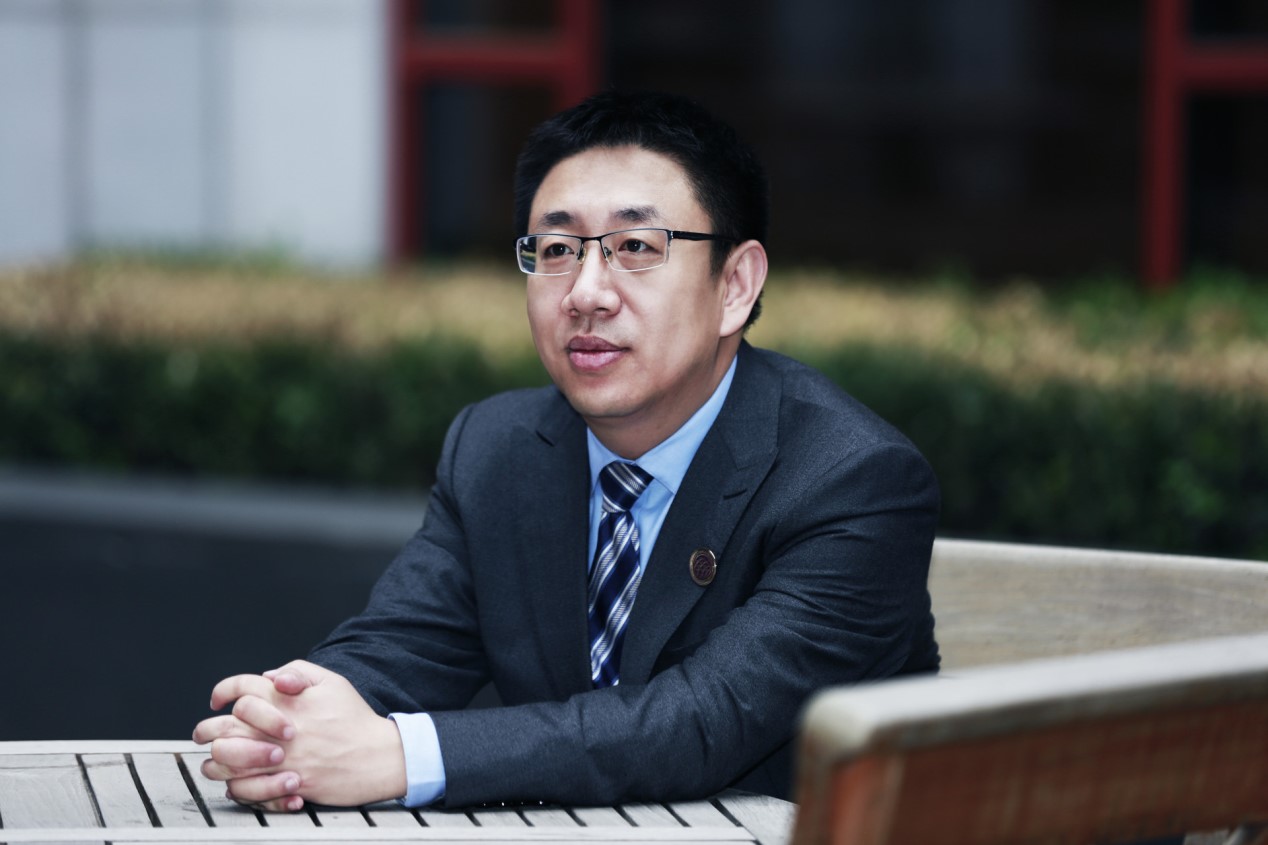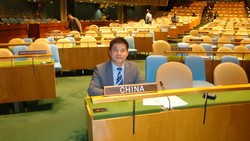一、承辦院系School/Department host:
社會(huì)科學(xué)學(xué) School of Social Sciences
二、挑戰(zhàn)主題Theme:
1.如何構(gòu)建可持續(xù)發(fā)展的生活方式?
How to create a sustainable lifestyle?
2.可持續(xù)發(fā)展目標(biāo)的監(jiān)測(cè)與評(píng)估
Monitoring and evaluation of the sustainable development goals
三、導(dǎo)語(yǔ)/背景情況概述Background:
1. 聚焦從聯(lián)合國(guó)17個(gè)可持續(xù)發(fā)展目標(biāo)中的性別平等、負(fù)責(zé)任的消費(fèi)和生產(chǎn)、優(yōu)質(zhì)教育以及可持續(xù)城市和社區(qū)出發(fā),構(gòu)建現(xiàn)代社會(huì)可持續(xù)發(fā)展的生活方式。
Focusing on gender equality, responsible consumption and production, quality education and sustainable cities and communities within the 17 United Nations SDGs to build a sustainable way of life in today’s society.
2. 運(yùn)用信息化技術(shù)以及大數(shù)據(jù)手段等方式,客觀、科學(xué)的測(cè)量某一區(qū)域或者國(guó)家的可持續(xù)發(fā)展目標(biāo)進(jìn)程并評(píng)估其效果。
Measuring and evaluating the process and effects of the sustainable development goals of a region or country objectively and scientifically by utilizing information technology and big data.
四、該領(lǐng)域比較關(guān)注的問(wèn)題Our key topics of interes:
1.如何促進(jìn)社會(huì)層面和家庭層面的性別平等?
How to promote gender equality at societal and family levels?
2.如何促進(jìn)企業(yè)的可持續(xù)發(fā)展轉(zhuǎn)型?
How to promote the sustainable development transformation of enterprises?
3.如何為貧困落后地區(qū)兒童和特殊兒童提供更好的教育?
How to provide better education for children in impoverished areas and Exceptional Children?
4.如何加強(qiáng)社區(qū)內(nèi)部的連結(jié)互動(dòng),構(gòu)建可持續(xù)發(fā)展的社區(qū)?
How to strengthen interaction between communities to build sustainable communities?
5.如何在日常生活中減少碳排放
How to reduce carbon emissions in daily life?
6.青年在實(shí)現(xiàn)可持續(xù)發(fā)展目標(biāo)過(guò)程中應(yīng)當(dāng)如何行動(dòng)?
How youth can take action to help achieve the SDGs?
7.可持續(xù)發(fā)展目標(biāo)的規(guī)劃、測(cè)量與評(píng)估工具
Tools used to plan, measure, and evaluate the SDGs.
五、主講老師Hack Leader

曲煒,中國(guó)政法大學(xué)法學(xué)博士,現(xiàn)任清華大學(xué)社會(huì)科學(xué)學(xué)院全球?qū)W習(xí)中心主任,IUP項(xiàng)目(清華大學(xué)、耶魯、斯坦福等11所世界一流高校共同實(shí)施的人才培養(yǎng)和學(xué)術(shù)交流項(xiàng)目)中方負(fù)責(zé)人。主要負(fù)責(zé)與中央部委和地方政府、大型企業(yè)和金融機(jī)構(gòu)、海外高校及國(guó)際組織的合作拓展和實(shí)施。同時(shí),創(chuàng)立了“地平線”全球青年共同發(fā)展計(jì)劃,致力于為青年參與全球治理與可持續(xù)發(fā)展進(jìn)程提供支持與助力。曾在中央部委工作13年,先后作為國(guó)家研究實(shí)施《聯(lián)合國(guó)反腐敗公約》工作協(xié)調(diào)小組、世貿(mào)組織貿(mào)易政策審議部際工作組等機(jī)構(gòu)的聯(lián)絡(luò)員,參與各工作組的相關(guān)工作,并參加了與《聯(lián)合國(guó)反腐敗公約》履約審議機(jī)制工作組、世貿(mào)組織秘書(shū)處工作小組和美國(guó)商務(wù)部的談判和會(huì)商工作。
Qu Wei, Doctor of Law, China University of Political Science and Law, is currently the director of the Global Learning Center of the School of Social Sciences of Tsinghua University and the Chinese leader of the IUP project (a talent training and academic exchange project jointly implemented by 11 world-class universities including Tsinghua University, Yale University, and Stanford University). He is responsible for developing and implementing cooperation with central ministries and commissions, local governments, large enterprises, financial institutions, overseas universities, and international organizations. Additionally, he created the “Horizon Program for Global Youth Development”, committed to providing support and assistance for young people to participate in global governance and sustainable development. He worked in central ministries and commissions for 13 years. Furthermore, he has served as the liaison of the national research and implementation of the "United Nations Convention against Corruption" work coordination group, WTO trade policy review inter-ministerial working group, and other institutions, participating in relevant work of each working group as well as negotiations and consultations with the Working Group on the Implementation Review Mechanism of the United Nations Convention against Corruption, the WTO Secretariat Working Group and the US Department of Commerce.
六、導(dǎo)師Mentors

蔣逸航。在聯(lián)合國(guó)工作達(dá)20余年,曾擔(dān)任聯(lián)合國(guó)教科文組織政府間海洋委員會(huì)西太平洋區(qū)域秘書(shū)處技術(shù)秘書(shū)、聯(lián)合國(guó)環(huán)境規(guī)劃署東亞海地區(qū)協(xié)調(diào)部門(mén)項(xiàng)目官員、聯(lián)合國(guó)環(huán)境規(guī)劃署/全球環(huán)境基金UNEP/GEF南海項(xiàng)目協(xié)調(diào)部門(mén)海洋污染高級(jí)專(zhuān)家、聯(lián)合國(guó)開(kāi)發(fā)計(jì)劃署/全球環(huán)境基金UNDP/GEF黃海大海洋生態(tài)系項(xiàng)目項(xiàng)目管理辦公室項(xiàng)目經(jīng)理,首席技術(shù)顧問(wèn)。現(xiàn)擔(dān)任中國(guó)海洋大學(xué)教授。所授課程:全球生態(tài)治理與保護(hù),國(guó)際組織工作實(shí)務(wù)、國(guó)際組織項(xiàng)目管理、國(guó)際組織工作能力建設(shè)等。
Jiang Yihang. He worked in the United Nations for more than 20 years and served as the Technical Secretary of the Western Pacific Regional Secretariat at the Intergovernmental Oceanic Commission of UNESCO, project officer of the East Asia Sea Region Coordination Department of the United Nations Environment Programme, senior marine pollution expert of the UNEP/GEF South China Sea Project of the United Nations Environment Programme/Global Environment Facility coordination department, project manager of the project management office of the United Nations Development Program/Global Environment Facility UNDP/GEF Yellow Sea Large Marine Ecosystem Project Management Office, and chief technical consultant. Currently, he is a professor at the Ocean University of China. He teaches classes on global ecological governance and protection, international organization work practice, international organization project management, and international organization work capacity building.

韓群力,現(xiàn)任國(guó)科聯(lián)(ICSU),聯(lián)合國(guó)減災(zāi)署(UNISDR)和中國(guó)科協(xié)中科院合作的災(zāi)害風(fēng)險(xiǎn)綜合研究計(jì)劃執(zhí)行主任。在聯(lián)合國(guó)工作20多年,歷任聯(lián)合國(guó)教科文組織生態(tài)司司長(zhǎng)、聯(lián)合國(guó)教科文組織人與生物圈計(jì)劃秘書(shū)長(zhǎng)、聯(lián)合國(guó)教科文組織自然學(xué)科部門(mén)執(zhí)行主任。曾經(jīng)連續(xù)擔(dān)任亞太地區(qū)的聯(lián)合國(guó)駐雅加達(dá)辦事處主席,負(fù)責(zé)科學(xué)項(xiàng)目。所授課程:國(guó)際組織工作實(shí)務(wù)、國(guó)際組織項(xiàng)目管理、國(guó)際組織工作能力建設(shè)、全球生態(tài)治理與環(huán)境保護(hù)。
Han Qunli. He is currently the executive director of the Comprehensive Disaster Risk Research Program supported by the National Federation of Science and Technology (ICSU), the United Nations Disaster Reduction Agency (UNISDR), and the Chinese Academy of Sciences. He worked in the United Nations for more than 20 years and served as the director of the UNESCO Department of Ecology, the Secretary-General of the UNESCO Man and Biosphere Program, and the executive director of the UNESCO Natural Science Department. He also served as the chairman of the United Nations Office in Jakarta in the Asia-Pacific region, responsible for scientific projects. He has taught courses including international organization work practice, international organization project management, international organization work capacity building, global ecological governance, and environmental protection.

陳文春,現(xiàn)任前海仁智資本管理(深圳)有限公司創(chuàng)始合伙人,旗下基金規(guī)模超10億人民幣,專(zhuān)注于硬核科技和SAAS領(lǐng)域的中早期科創(chuàng)項(xiàng)目投資。陳文春先生具有豐富的國(guó)際機(jī)構(gòu)工作經(jīng)歷,曾擔(dān)任聯(lián)合國(guó)總部戰(zhàn)略資源處代理處長(zhǎng)和聯(lián)合國(guó)審計(jì)委員會(huì)副主任,推動(dòng)了國(guó)際公共部門(mén)會(huì)計(jì)準(zhǔn)則、Umoja等聯(lián)合國(guó)重大改革項(xiàng)目的順利實(shí)施。
Chen Wenchun. He is currently the founding partner of Qianhai Renzhi Capital Management (Shenzhen) Co., Ltd., with a fund size of more than 1 billion RMB, focusing on mid-and-early-stage scientific and technological innovation projects in the field of hardcore technology and SAAS. Mr. Chen Wenchun has extensive work experience in international organizations. He has served as the Acting Director of the Strategic Resources Division of the United Nations Headquarters and the Deputy Director of the United Nations Audit Committee. In addition, he has promoted the implementation of major United Nations reform projects such as International Public Sector Accounting Standards and Umoja.

李國(guó)平,現(xiàn)任金融科技創(chuàng)新聯(lián)盟副秘書(shū)長(zhǎng)、微軟(中國(guó))公司金融行業(yè)總監(jiān),兼任微軟創(chuàng)投加速器顧問(wèn)導(dǎo)師,全球金融科技實(shí)驗(yàn)室專(zhuān)家顧問(wèn);上海高金金融研究院金融科技專(zhuān)家顧問(wèn)委員會(huì)委員。
Li Guoping. He is currently the deputy secretary-general of the Financial Technology Innovation Alliance, the financial industry director of Microsoft (China), a consultant mentor of Microsoft Venture Capital Accelerator, an expert consultant of the Global Fintech Lab, and a member of the Financial Technology Expert Advisory Committee of Shanghai Gaojin Financial Research Institute.
七、承辦院系簡(jiǎn)介
學(xué)院現(xiàn)有教職工82人,其中教授39人,副教授32人,助理教授9人,行政管理人員2人。另有博士后92名。現(xiàn)有在校生496人,碩士生450人,博士生398人。學(xué)院現(xiàn)有學(xué)生1344人,其中國(guó)際學(xué)生233人,港澳臺(tái)學(xué)生42人。
學(xué)院下設(shè)4個(gè)系1個(gè)研究所。分別為社會(huì)學(xué)系、政治學(xué)系、國(guó)際關(guān)系學(xué)系、心理學(xué)系和經(jīng)濟(jì)研究所。學(xué)院還設(shè)有55個(gè)跨學(xué)科實(shí)質(zhì)性研究機(jī)構(gòu)。
Introduction to the School of Social Sciences
The School has 82 faculty and staff, including 39 full professors, 32 associate professors, 9 assistant professors and 2 key administrative staff. Additionally, there are 92 postdoctoral fellows in the School. The current enrollment is 496 undergraduate students, 450 Master’s students and 398 doctoral students. The School has a total of 1344 students, including 233 international students and 42 students from Hong Kong, Macau and Taiwan.
The School has four departments and one institute: the Department of Sociology, Department of Political Science, Department of International Relations, Department of Psychology, and Institute of Economics. There are also about 55 interdisciplinary functioning research institutions in the School.